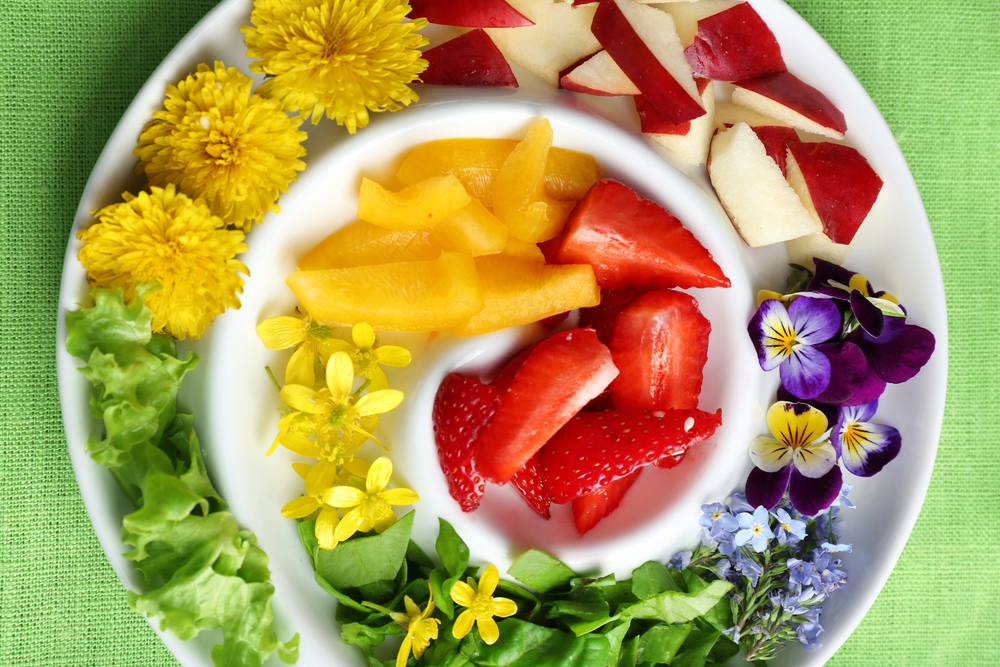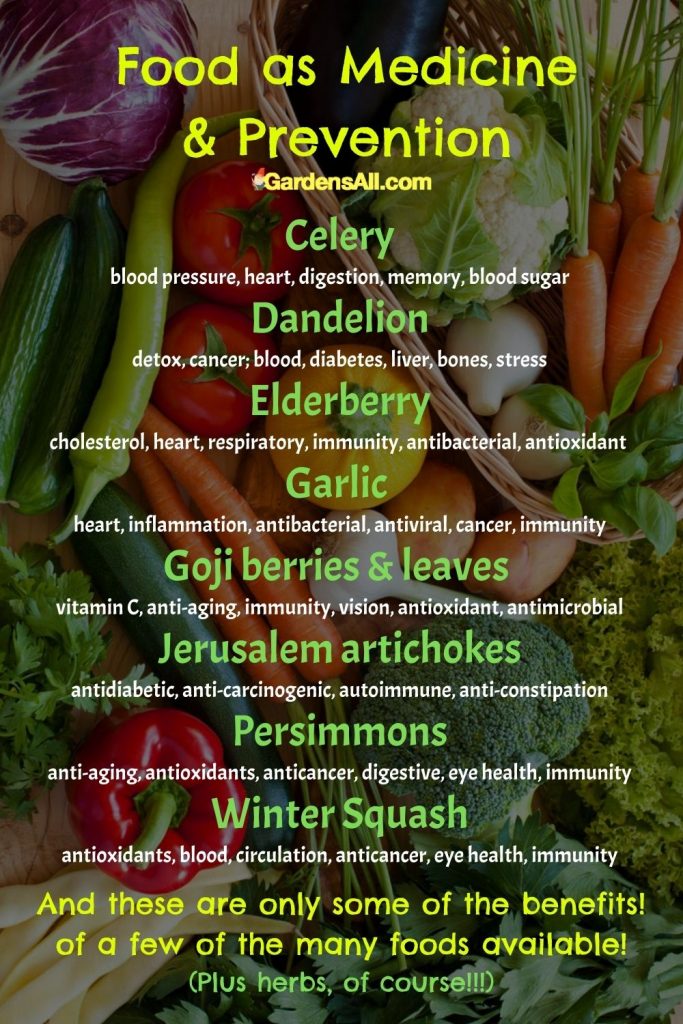Foods can cause disease… or cure disease.
Animals in the wild tend to know innately, which foods to eat and which to avoid. They also tend to know which foods to consume to help heal. In modernity humans tend to be removed from this instinctual knowledge. This is just something that happens when we have the leisure and privilege to learn to create foods into all kinds of treats and delicacies, often far removed from its natural form.
Most of us tend to forget that food is for nutrition, healing and survival over taste. Ask the average child, teen or adult, what they’re going to have for lunch or dinner, and chances are the majority will choose based on what they feel like eating.
What if we had the ability to do an instant-results saliva test that could tell us at any given time of day which nutrients our body needed most? Then we proceeded to consume those foods next. When we begin to look at food as medicine and fuel, it’s easier to make better, healthier food choices and harder to choose that donut, french fries, soda or potato chips… the kinds of foods that give pleasure but not substance that your body needs.
Famous Hippocrates Quote:
“Let food be thy medicine, and medicine be thy food.”
~Hippocrates, 460-370 BC
It must’ve worked for him because Hippocrates lived to be approximately 90 years old, (exact dates are uncertain).[1]https://www.thefamouspeople.com/profiles/hippocrates-120.php
We know we need food and water to survive, yet most people don’t consume enough water, or eat enough healthy foods prepared in ways that retain the most nutrition.
That’s a bit like casting garden seeds into a meadow. Some may grow, but none of them will have their best chance.
Instead, we turn the soil, add amendments (supplements), we plant nourishing ground covers plants to feed and restore the soil. Then we plant and water and feed the garden what it needs, so that in turn, it will feed us well.
When we choose our food for nutrition first, flavor second, we will have better health and wellness.

Good, Bad or Neutral Foods?
In spite of the familiar Hippocrates quote, in a world full of tempting foods, it’s easy to forget the primary purpose of food: fuel, nutrients and medicine.
Nutrition simplified is to consider that every bite we consume has one of three results: nourishing, detrimental, or neutral.
- nourishing
- detrimental
- neutral
This is not a scientific conclusion. Rather, it’s a general rule of thumb, that for optimum health, at least 80% of our diet should fall under the first category: nourishing. That means not only eating the amazing fresh organic foods from the garden, but also, not overcooking our veggies, and not overindulging in sugary treats.
What is the Best Fat for Cooking?
An example of “neutral” health benefit might be a vegetable that has been overcooked to the point that most of the natural nutrients have been destroyed or rendered mostly useless. Some foods, when overcooked, or fried, can actually become toxic, and cancer-inducing, but we won’t go into that here.[2]https://www.techtimes.com/articles/104393/20151109/scientists-recommend-cooking-with-lard-butter-frying-with-vegetable-oil-releases-toxic-cancer-causing-chemicals.htm
The Most Stable Oils for Cooking
The best, most stable fats for cooking is olive oil and canola oil (NOT rapeseed oil). The canola plant is cultivated from the rapeseed plant, however, it does not contain the same high level of the detrimental erucic acid. [3]https://www.mayoclinic.org/healthy-lifestyle/nutrition-and-healthy-eating/expert-answers/canola-oil/faq-20058235
The Most Toxic Oils for Cooking
Sunflower and corn oil are the most toxic when cooked. The amount of aldehydes released by sunflower and corn oil was said to be 20 times higher than the prescribed level of the World Health Organization. Olive oil and rapeseed oil generated significantly lower amounts of aldehydes as goose fat and butter.
REFERENCE: Tech Times[4]https://www.techtimes.com/articles/104393/20151109/scientists-recommend-cooking-with-lard-butter-frying-with-vegetable-oil-releases-toxic-cancer-causing-chemicals.htm
Oil changes its molecular structure when heated and produces substances called aldehydes, which may cause cancer and heart disease. The worst oils? Corn oil, sunflower oil and butter. The best oils? Olive and canola oils.
Ask: ‘What Does My Body Need’, More Than ‘What Do I Want’
For most of us, when we’re deciding what to eat for a meal or snack, what’s one of the first things we say or think? “What do I want to eat?” Right? But what if instead, we said, “What does my body need most?”
If that seems impractical given the vast array of temptations and favorite foods today, we get it! But what about 80% of the time? That’s more doable isn’t it? And to shoot for that goal turns the current average American diet upside down in a good way.
Food as medicine is a really logical and appealing, low cost solution over disease and drugs.
One man in the GardensAll community, David, not only healed himself through his garden, but was able to earn a decent living gardening on just a small farm organic gardener with just 1/8 of an acre.

Celery Lowers Blood Pressure
If blood pressure is an issue, it maybe that you have to take a pill. Or, it may be that you can just eat a stalk.
Consider the incredible healing power in that one simple and very common garden vegetable. To munch on healthy foods first tends to replace the desire of snacking on junk food and works wonders for the body!
We love natural cures, and always go there first. It just makes sense. Sometimes we forget that natural remedies have been around longer than modern medicine.

Medicinal Benefit of Foods
So… for starters, (and these are just a few of the benefits):
- Celery – blood pressure; heart; digestion; memory; blood sugar
- Elderberry – Digestion; cholesterol; diabetes; heart; respiratory; immunity; antibacterial; antioxidant; anti-inflammatory; arthritis; muscles; joints; bones; skin
- Dandelion – high in vitamin A & C; detox; cancer; blood; diabetes; liver; bones; stress
- Garlic – heart; inflammation; antibacterial; antiviral; cancer; expectorant; immunity
- Goji Berries – high in vitamin C; anti-aging; immunity; vision; antioxidant; antimicrobial
- Jerusalem artichokes – regulates blood sugar, antidiabetic, anti-carcinogenic, anti-fungistatic[5]https://pubmed.ncbi.nlm.nih.gov/32583794/
- Kohlrabi – burns fat; fights cancer
- Persimmons for cancer prevention; blood; circulation
- Rhubarb – fights cancer, Alzheimer’s foe, infections, antioxidant friend to skin, sinuses & membranes
- Strawberry fruit & leaves – more antioxidants than the fruit – see strawberry leaves benefits
- Winter Squash – anti-aging, antioxidants, blood, circulation, anticancer, digestive, eye health, immunity

Add any vegetable or fruit and you’ve got health and healing benefits when eaten in its natural form or fermented for a probiotic boost.
There are so many healing foods and ingredients you probably already have in your kitchen that can help specific conditions. And, since it’s a favorite topic for us, we also have other articles that may interest you, such as this one on remedies home remedies for cold and flu in your kitchen and other homegrown remedies.
I’m LeAura Alderson, a garden, herb and plant enthusiast with a passion for discovering the many edible and medicinal benefits of the plants all around us, including the weeds! I’m a writer, editor and media publisher for our family of websites.
While I was certified in fitness and life coaching, I am NOT a health practitioner. However, I’m a lifelong health enthusiast, with a keen interest in healthy, organic foods and making home remedies and the content we share is from our own experience and usage as well as that extracted from scientific research so that you can explore further on your own.
Always seek the advice and guidance of your health practitioners first and foremost.
As a family we’re steadily expanding our gardening, experimentation and knowledge around all things gardening, edible landscaping, fresh organic foods and self sustainability with farming in our future. I also own and manage iCreateDaily.com, a site all about transformation through creation, and the power of positivity, optimism and mindset.
References

